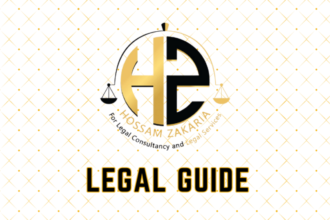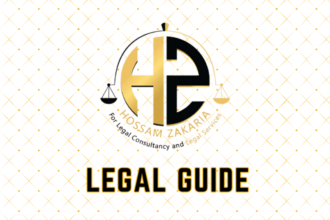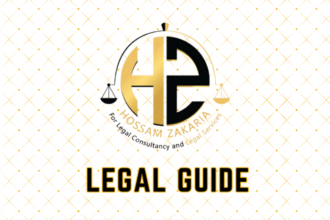Introduction: The Evolving Compliance Landscape for UAE Businesses
As the United Arab Emirates continues to cement its status as a regional aviation and commercial leader, robust compliance with safety and regulatory frameworks has become a non-negotiable for businesses operating within its borders. The ongoing modernization of UAE laws—highlighted by strategic initiatives such as Federal Decree-Law No. 26 of 2022 on Regulating Civil Aviation—has brought renewed focus on regulatory oversight, particularly through the lens of safety audits and inspections governed by the General Authority of Civil Aviation (GACA).
In recent years, GACA has intensified its audit and inspection protocols, introducing rigorous standards for businesses across the aviation supply chain as well as those intersecting critical infrastructure and public safety. Understanding the intricacies of GACA audits—and the broader context of regulatory inspections—is both a compliance imperative and a competitive advantage in the evolving legal environment of 2025 and beyond.
This comprehensive advisory unpacks the statutory framework, practical implications, risk mitigation strategies, and essential compliance steps that UAE businesses must internalize. Legal practitioners, business leaders, compliance managers, and HR executives will gain valuable insights into navigating emerging requirements and maintaining a proactive compliance stance as new laws and enforcement priorities come into effect.
Table of Contents
- Overview of GACA and the UAE Regulatory Environment
- Statutory Foundations: The Legal Backbone of Safety Audits
- Scope and Process of GACA Safety Audits and Inspections
- Compliance Obligations for UAE Businesses
- Comparative Analysis: Previous vs. Updated UAE Aviation Laws
- Case Studies and Practical Scenarios
- Risks of Non-Compliance and Enforcement Measures
- Strategies for Robust Compliance Management
- Conclusion and Forward-Looking Perspectives
Overview of GACA and the UAE Regulatory Environment
The Role of GACA
The General Authority of Civil Aviation (GACA) is the principal body overseeing civil aviation safety, security, and regulatory compliance in the UAE. Its mission, underscored by the Federal Decree-Law No. 26 of 2022 and subsequent Cabinet Resolutions, is to set, monitor, and enforce standards impacting all operators, service providers, and ancillary stakeholders within the aviation ecosystem. GACA’s remit has expanded beyond airlines to encompass airports, contractors, logistics providers, maintenance firms, and others whose operations intersect regulated airspace and aviation infrastructure.
Recent Legal Developments and Significance
With the issuance and phased implementation of Federal Decree-Law No. 26 of 2022, the compliance bar for businesses has been raised. This law, in tandem with regulations published on the UAE Government Portal, outlines more prescriptive audit procedures, higher documentation standards, closer scrutiny of safety management systems (SMS), and expanded inspector authority.
For UAE-based companies, the law signals both increased regulatory visibility and heightened accountability, making proactive compliance engagement essential not only for license retention but also for business continuity in a transforming legal climate.
Statutory Foundations: The Legal Backbone of Safety Audits
Main Legal Instruments
Federal Decree-Law No. 26 of 2022 on Regulating Civil Aviation serves as the core legal foundation, supplemented by Ministerial Resolutions such as Cabinet Resolution No. 10 of 2023 (Safety Management and Compliance) and periodic GACA-issued circulars.
| Instrument | Summary / Application |
|---|---|
| Federal Decree-Law No. 26 of 2022 | Defines GACA enforcement powers, audit triggers, sanctions, and rights of appeal. |
| Cabinet Resolution No. 10 of 2023 | Mandates SMS, documentation, and reporting obligations for regulated entities. |
| Ministerial Guidelines on Audit Protocols (2024) | Stipulates updated audit checklists, process mapping, and escalation criteria. |
Authority, Scope, and Inspection Triggers
GACA possesses legal authority to conduct announced and unannounced inspections, request documentary evidence, interview staff at all levels, and access operational facilities. Triggers may include routine scheduling, complaints, incident reports, or random selection as part of risk-based oversight strategies.
Recent guidelines expand the scope to cover not only core aviation functions but also contractors and vendors in critical supply chains, in line with international best practices and ICAO mandates, as referenced in the UAE GACA Safety Regulation Portal.
Scope and Process of GACA Safety Audits and Inspections
What Does a Typical Audit Involve?
While audit specifics reflect the regulated activity, GACA’s enhanced protocols generally involve:
- Pre-audit notification and documentation request (where applicable)
- On-site inspection or virtual assessment (especially post-pandemic)
- Process and facility walkthrough, focusing on critical operations
- Interviews with key personnel and review of training records
- Examination of compliance systems (e.g., SMS, incident reporting, document control)
- Observational tests or simulation exercises
- Review of corrective action plans from previous audits
The inspection team has the legal mandate to:
- Access digital and paper records
- Observe, photograph, or document operational environments
- Collect samples or evidence (in the event of suspected non-compliance)
Reporting, Rectification, and Follow-up
Following the inspection, GACA issues a detailed audit report outlining findings, commendations, non-conformities, and actionable recommendations alongside deadlines for remediation. The law requires regulated entities to adopt corrective measures within defined timeframes and to submit evidence of closure, failing which more severe enforcement measures may ensue.
Visual Suggestion: Process Flow Diagram of GACA Safety Audit
We recommend a clear process flow diagram depicting pre-audit preparation, on-site inspection, reporting, follow-up, and closure for reader clarity.
Compliance Obligations for UAE Businesses
Who Is Required to Comply?
All entities licensed or certified by GACA—whether directly (e.g., airlines, airport authorities, ground handling agents) or indirectly (maintenance contractors, supply chain vendors)—are subject to the audit framework. New regulations clarify that compliance also extends to digital platforms, drone operators, and remote maintenance providers, reflecting the growing use of technology in aviation operations.
Key Business Responsibilities
- Documentation: Maintain accurate, current, and secure records of all activities subject to GACA oversight, including incident logs and employee training registers.
- Staff Training: Ensure ongoing staff education reflecting the latest safety procedures and legal standards as per Cabinet Resolution No. 10 of 2023.
- Incident Reporting: Promptly report safety events or regulatory breaches as required by law.
- Remediation: Address audit findings with documented corrective action in a timely manner.
Non-compliance in any of these areas may trigger intensified scrutiny, sanctions, or—under severe circumstances—license suspension or revocation.
Comparative Analysis: Previous vs. Updated UAE Aviation Laws
| Aspect | Pre-2022 Law | Federal Decree-Law No. 26 of 2022 & Recent |
|---|---|---|
| Audit Trigger | Mainly reactive (based on incidents) | Proactive, risk-based, regular, random selection |
| Scope | Core aviation activities only | Expanded to contractors, digital services, supply chains |
| Penalties | Primarily warnings and fines | Escalated: fines, license suspension, public disclosure |
| Reporting Mandate | Basic report filing | Detailed, structured, deadlines for remediation and proof of closure |
Visual Suggestion: Penalty Comparison Chart
An easy-to-read bar or pie chart comparing fine ranges and enforcement actions before and after 2022 reform will enhance engagement.
Case Studies and Practical Scenarios
Case Study 1: Airline Maintenance Contractor
Scenario: A UAE-based maintenance contractor is audited after a reported equipment malfunction. GACA inspectors review digital maintenance logs, interview engineers, and request evidence of recurring safety training. The company’s inability to produce updated training records within five days triggers a warning and a deadline for remediation under Cabinet Resolution No. 10 of 2023. Post-compliance, the contractor enhances digital recordkeeping and introduces automated reminders for staff training refreshers, reducing future audit risks.
Case Study 2: Unannounced Inspection of Logistics Vendor
Scenario: A logistics vendor operating on the airport apron faces a surprise GACA audit. Inspectors observe unsafe handling of hazardous materials, leading to an immediate on-site correction and a requirement for remedial employee safety sessions. Because the vendor’s SMS failed to identify this specific risk, GACA imposes a fine and mandates SMS recalibration within 14 days. Timely action averts license suspension.
Hypothetical Scenario: Digital Aviation Solutions Start-Up
A start-up managing drone operations is subject to its first virtual audit. GACA requests comprehensive evidence of incident reporting procedures in line with Federal Decree-Law No. 26 of 2022. Insufficient documentation triggers a compliance warning and structured improvement plan under Ministry guidelines, highlighting the extension of regulatory oversight into emerging aviation tech fields.
Risks of Non-Compliance and Enforcement Measures
Legal, Commercial, and Reputational Consequences
- Regulatory Sanctions: Fines (which have increased as of 2023), suspension or loss of operating licenses, and public disclosure of violations.
- Commercial Risk: Disqualification from public tenders or partnership frameworks, supply chain disruptions, and contractual disputes with aviation authorities or business partners citing breach of compliance obligations.
- Reputation Impact: Negative press, market-share erosion, and loss of stakeholder confidence. Media reporting on major violations is intensified under new transparency rules.
| Non-Compliance Type | 2022 Penalty | 2025 Penalty (Revised) |
|---|---|---|
| Failure to maintain records | Warning; minor fine | Substantial fine; public notice; remediation order |
| Major safety breach | Temporary suspension | Immediate license revocation; referral for prosecution |
| False incident reporting | Investigation only | Criminal prosecution; mandatory compliance overhaul |
Strategies for Robust Compliance Management
Proactive Measures and Best Practices
- Compliance Checklists: Maintain a dynamic checklist tailored to the entity’s activity, updated as law and technology evolve.
- Regular Internal Audits: Replicate GACA audits periodically to identify vulnerabilities before official inspection.
- Employee Training: Establish ongoing legal and operational upskilling programs, and keep a record of participation and assessment outcomes.
- Engage Legal Counsel: Assign a qualified legal advisor or compliance officer to align business processes with the latest legislative changes, leveraging regular updates from the Federal Legal Gazette.
- Technology Adoption: Invest in secure, cloud-based compliance management systems, audit trail functionality, and automatic flagging of non-conformities.
Visual Suggestion: GACA Safety Audit Compliance Checklist
Offering a downloadable or interactive compliance checklist tailored to GACA requirements will aid organizations in their ongoing compliance journey.
Conclusion and Forward-Looking Perspectives
The expansion and enforcement of GACA safety audit protocols reflect the UAE’s commitment to a world-class regulatory and commercial environment. As implementation of Federal Decree-Law No. 26 of 2022, Cabinet Resolution No. 10 of 2023, and related guidelines continues, companies can expect more data-driven, frequent, and comprehensive inspections across the board.
Key Takeaways:
- Audits now reach further into business operations, digital activities, and supply chains.
- Documentation, incident reporting, and corrective actions must be executed with speed and accuracy.
- Non-compliance carries steeper legal, commercial, and reputational risks than ever before.
Best Practices: Companies who embrace continuous monitoring, internal auditing, and specialist legal counsel placement will be well positioned to thrive under the UAE’s evolving compliance regime. Staying informed through the UAE Ministry of Justice and sector-specific channels is essential for anticipating legal shifts and regulatory updates into 2025 and beyond.
Ultimately, proactive engagement, transparency, and robust internal controls stand as the pillars of sustainable legal compliance—and competitive advantage—in the UAE’s dynamic economic landscape.



